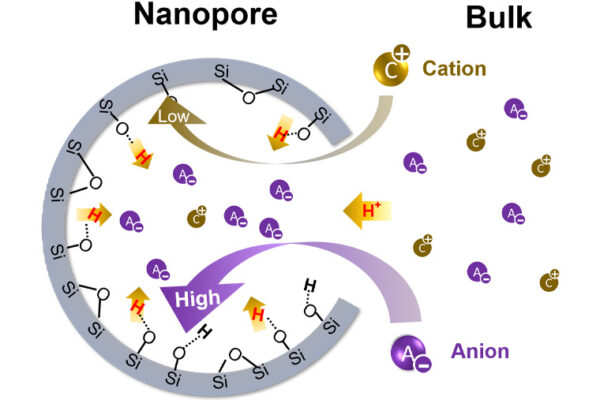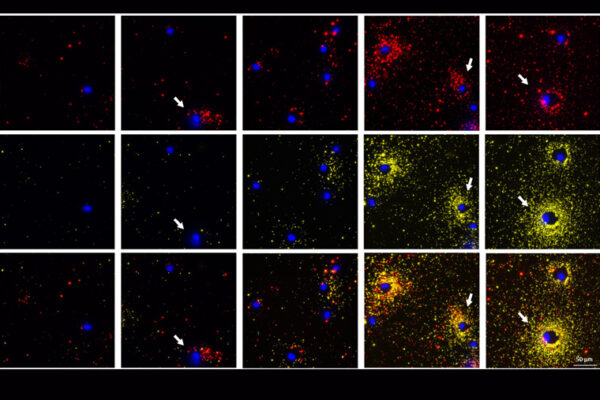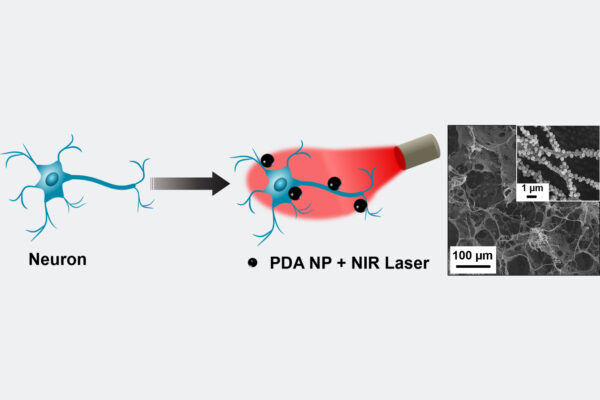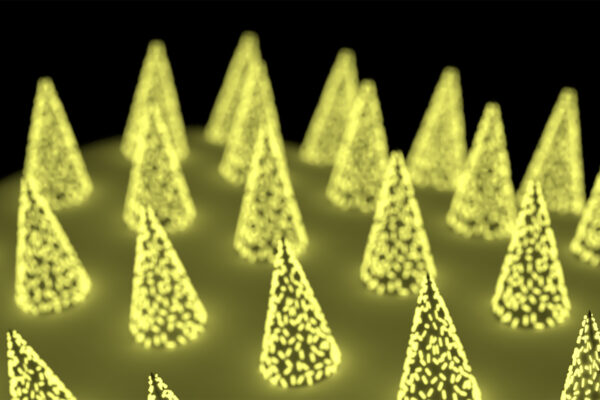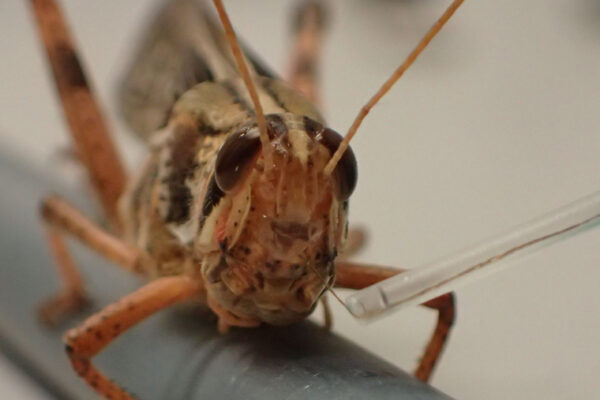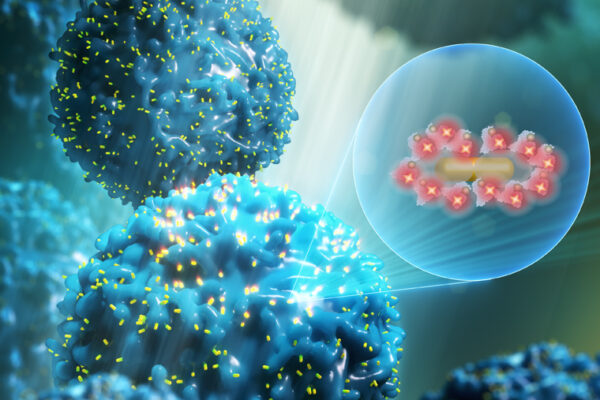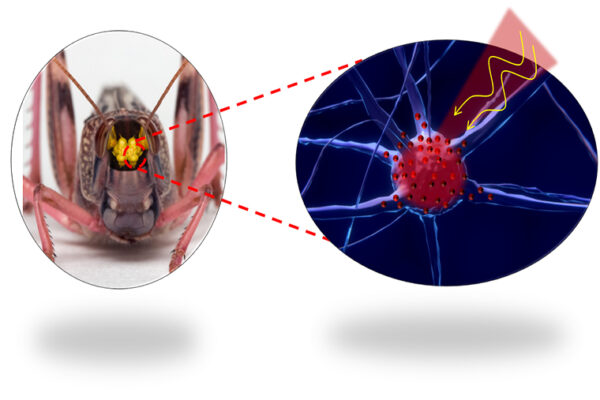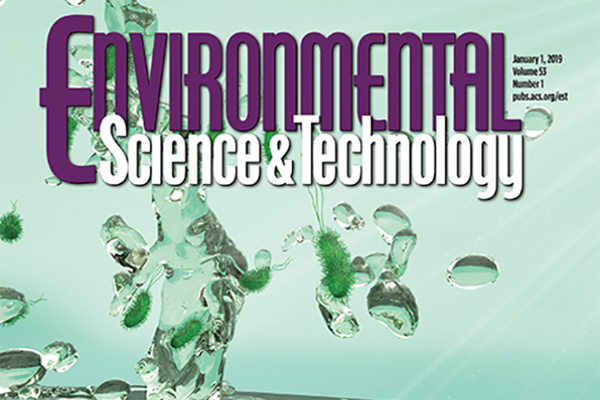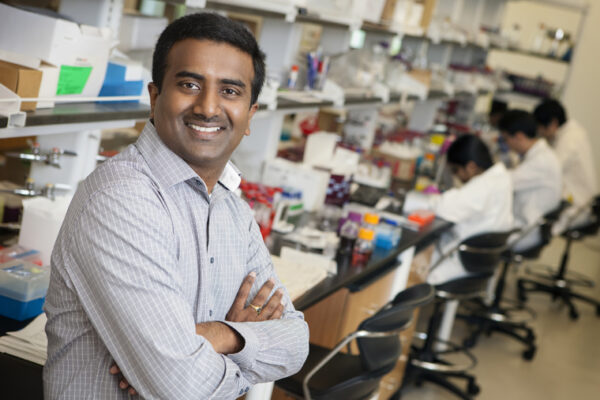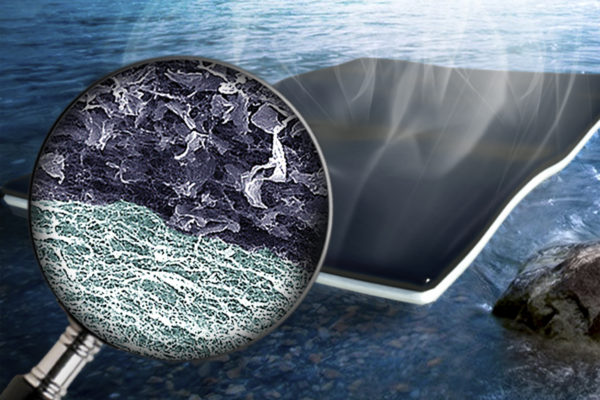Singamaneni’s research interests include Plasmonic engineering in nanomedicine (in vitro biosensing for point-of-care diagnostics, molecular bioimaging, nanotherapeutics), photovoltaics (plasmonically enhahced photovoltaic devices), surface enhanced Raman scattering (SERS) based chemical sensors with particular emphasis on the design and fabrication of unconventional and highly efficient SERS substrates, hierarchical organic/inorganic nanohybrids as multifunctional materials, bioinspired structural and functional materials, polymer surfaces and interfaces, responsive and adaptive materials and scanning probe microscopy and surface force spectroscopy of soft and biological materials.

Srikanth Singamaneni
Professor of Mechanical Engineering & Materials Science
Contact Information
- Phone: 314-935-5407
- Email: singamaneni@wustl.edu
- Website: Website
Media Contact
In the media
Wash U Engineers Use Bacteria And Nanotechnology To Purify Dirty Water
Young-Shin Jun, professor of energy, environmental and chemical engineering; and Srikanth Singamaneni, professor of mechanical engineering and materials science
Researchers develop storage method for blood, urine without refrigeration
Srikanth Singamaneni, associate professor of mechanical engineering and materials science
Stories
Understanding outsize role of nanopores
Researchers from the McKelvey School of Engineering discover the conditions inside tiny pores can have big consequences for chemistry.
‘Simple yet powerful’: Seeing cell secretion like never before
An interdisciplinary team led by the lab of Srikanth Singamaneni has developed a new way to better visualize the proteins secreted by cells.
Nanoparticles create heat from light to manipulate electrical activity in neurons
Srikanth Singamaneni and Barani Raman in the McKelvey School of Engineering developed technology to use nanoparticles to heat, manipulate cells in the brain and heart.
No more needles?
WashU engineers have developed a biosensing microneedle patch that can be applied to the skin, capture a biomarker and, thanks to its unprecedented sensitivity, allow clinicians to detect the biomarker’s presence.
Researchers one step closer to bomb-sniffing cyborg locusts
Research from the McKelvey School of Engineering at Washington University in St. Louis has determined that locusts can smell explosives and determine where the smells originated — an important step in engineering cyborg bomb-sniffing locusts.
WashU engineers to help develop rapid COVID-19 test
Researchers at the McKelvey School of Engineering at Washington University in St. Louis received funding for a new COVID-19 test that is based on brand new technology that won’t require brand new tools, making it easy for clinicians to use.
Light-activated nanoheaters may control nerve cells, locust mind
Engineers from the McKelvey School of Engineering want to know if they can use nanotechnology to control neurons and parse the relationship between neural activity and behavior and disease.
Using bacteria to create a water filter that kills bacteria
Engineers have created a bacteria-filtering membrane using graphene oxide and bacterial nanocellulose. It’s highly efficient, long-lasting and environmentally friendly — and could provide clean water for those in need.
Washington People: Srikanth Singamaneni
The associate professor in the School of Engineering & Applied Science works to create powerful sensors that can detect chemicals, biomarkers that could speed health-care diagnostics and new materials to clean dirty water.
Dirty to drinkable
A team of engineers at Washington University in St. Louis has found a way to use graphene oxide sheets to transform dirty water into drinking water, and it could be a global game-changer.
Good as gold
Researchers at Washington University in St. Louis, led by Srikanth Singamaneni, PhD, associate professor of materials science in the School of Engineering & Applied Science, are using color-shifting nanoparticles of gold, combined with specifically engineered artificial antibodies, to detect biochemical signs of kidney damage.
